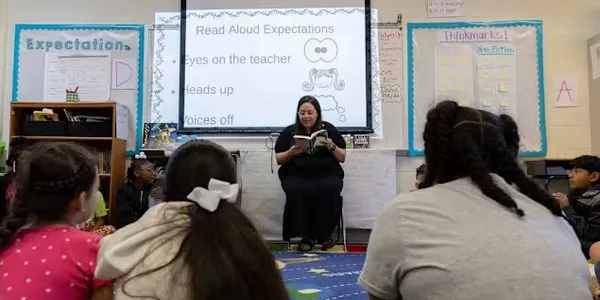TX Cuts $607 Million in Funding for Special Education
By: D. D. Reese
In a significant policy shift, Texas has announced a reduction of over $607 million annually in Medicaid funding allocated to special education services through the School Health and Related Services (SHARS) program. This program reimburses school districts for services provided to Medicaid-eligible students with disabilities, including counseling, therapy, nursing, and transportation.
Background and Rationale
The Texas Health and Human Services Commission (HHSC) has implemented stricter limitations on the types of services eligible for federal reimbursement under SHARS. This decision follows a longstanding dispute between the state and federal government regarding billing practices. A federal audit revealed that Texas had improperly billed Medicaid for certain services, leading to a request for the state to return $16 million in federal funds.
Impact on School Districts
The funding reduction has raised concerns among local school districts about potential impacts on students with disabilities. Many districts rely on SHARS reimbursements to support special education programs. The cuts may strain already tight budgets, potentially leading to reduced services or the need to reallocate funds from other areas.
Some rural districts have considered exiting the SHARS program due to the administrative burden and financial uncertainty. Others are formally appealing the funding cuts with the state, seeking clarity and potential remedies.
Pros and Cons
Pros:
Fiscal Responsibility: The state's actions aim to address improper billing practices and ensure compliance with federal regulations, potentially safeguarding future funding.
Program Integrity: By tightening reimbursement criteria, the state seeks to enhance the integrity and efficiency of the SHARS program.
Cons:
Service Reductions: School districts may face challenges in maintaining the same level of services for students with disabilities, potentially affecting educational outcomes.
Budgetary Strain: Districts might need to divert funds from other programs or seek additional resources to compensate for the loss, impacting overall educational offerings.
Looking Ahead
As Texas navigates the implications of these funding changes, stakeholders, including educators, parents, and policymakers, are closely monitoring the situation. The balance between fiscal oversight and ensuring adequate support for students with disabilities remains a central concern. Further discussions and potential legislative actions may shape the future of special education funding in the state.
